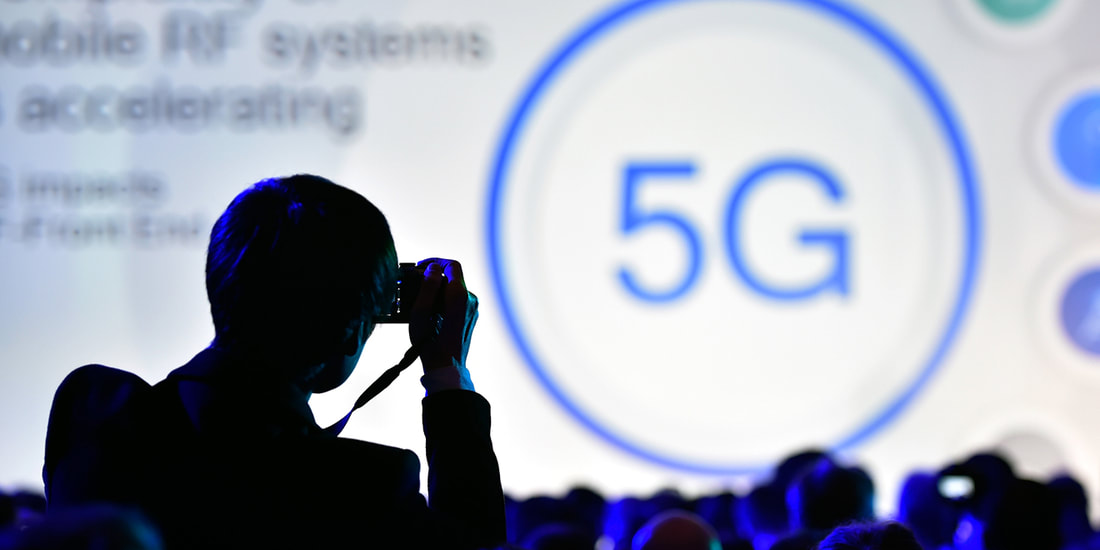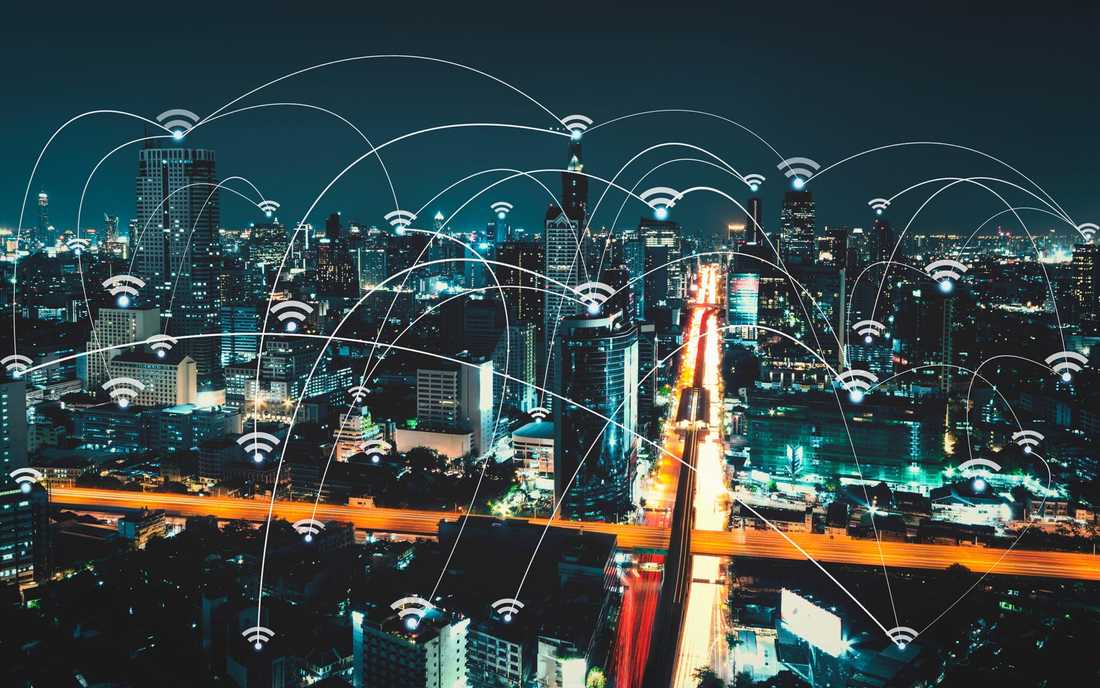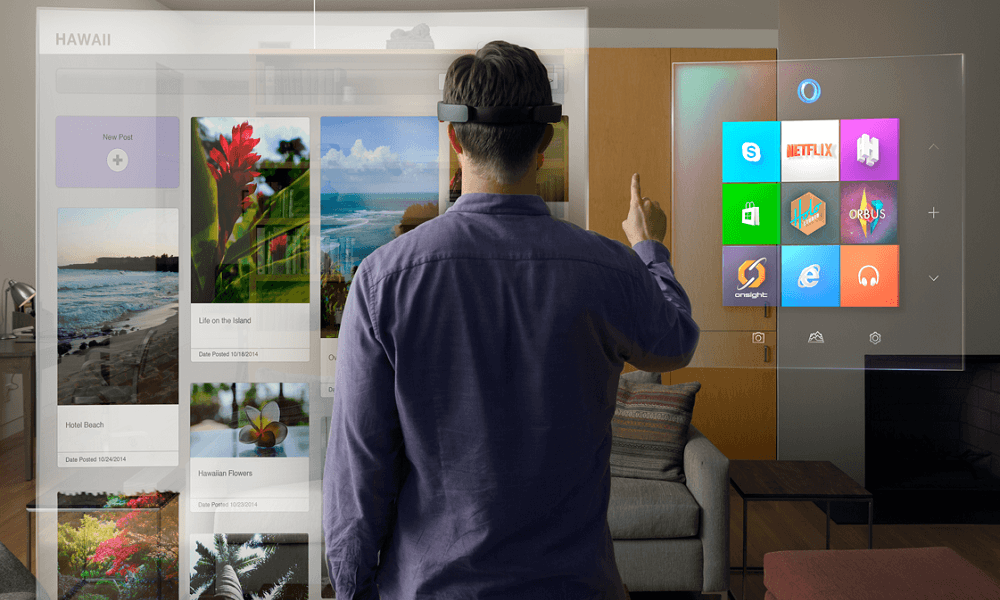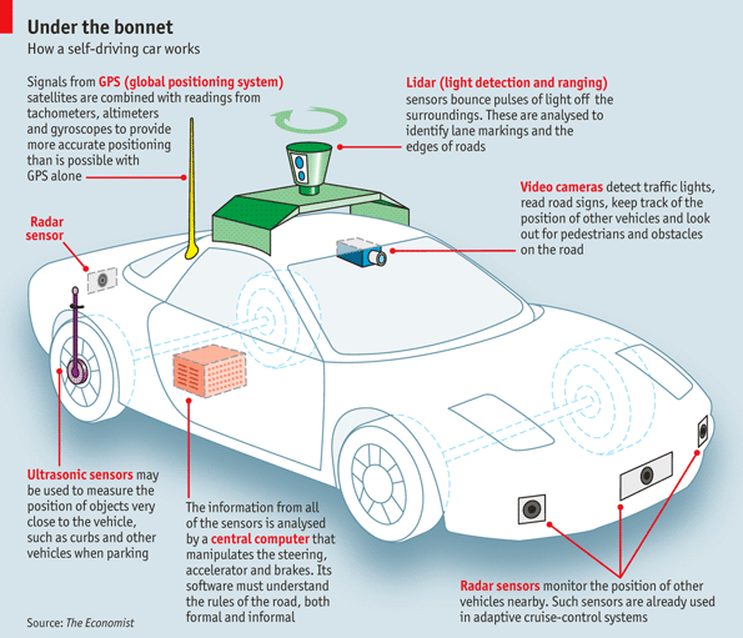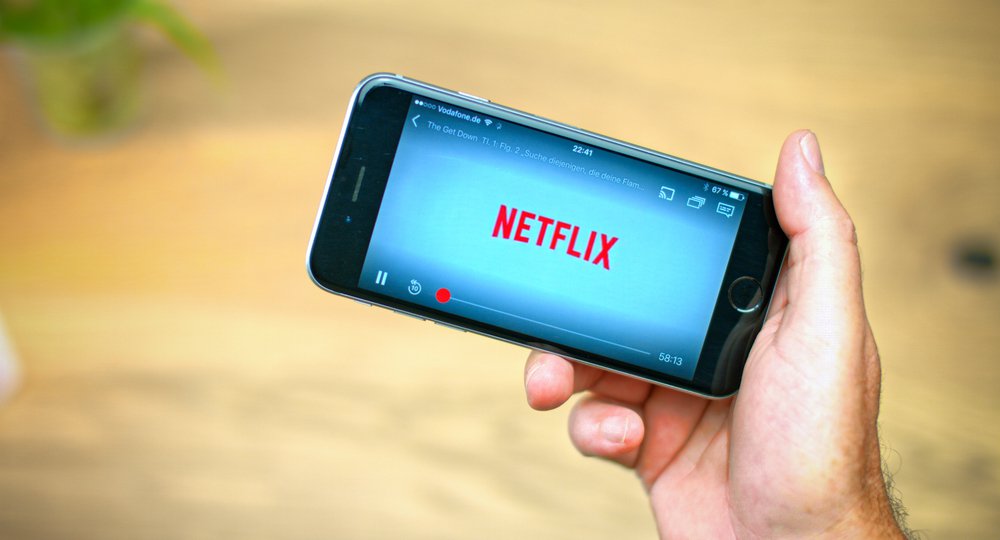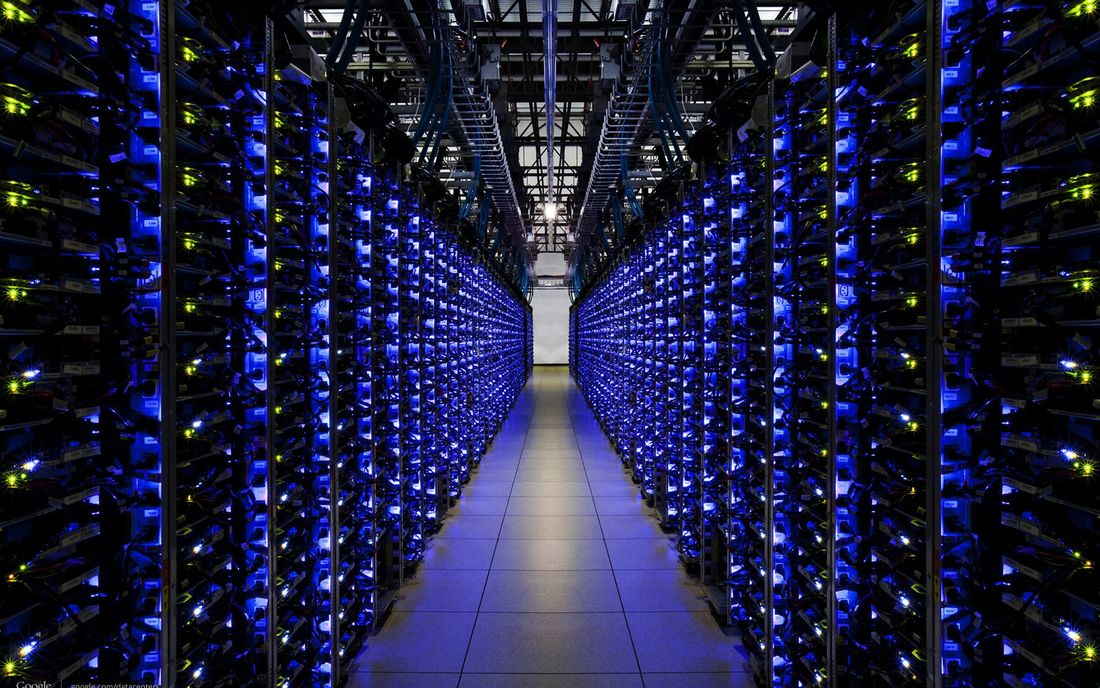Here's how 5G will transform Ireland
The next generation of mobile networks is just upon us, here's how it will break down our barriers and advance our society.
5G will break down our barriers
As with all new technologies, they're developed to make our lives easier, to break down our barriers. 5G will do exactly that. Vodafone likes to use the term 'Gigabit Society' to describe a society powered by fibre and gigabit speeds. 5G will allow Ireland to become a 'Gigabit Society', a society in which everyone has access to the same cutting-edge network, a network built for the future.
For the medical industry, 5G is a huge opportunity to save lives and deliver better care to patients. Delivering ultra-low latency, 5G allows remote surgeries to be carried out by doctors. A surgeon may be in Australia and operating on a patient in Ireland. Their precise inputs are converted to outputs in a robotic arm carrying out the surgery. Robotic arms can deliver significantly more precise movements and do not tire.
The dawn of drones is upon us. We've all heard of Amazon's ambitions to use fleets of drones to deliver your shopping. There's also the application of using drones in search and rescue operations, such as a flood, terror attack or volcanic eruption. These remotely controlled drones can drop medical supplies and survey the damage. 5G provides the ultra-low latency and capacity to handle such a large number of devices. These drones could also be used to live stream sporting events from above, offering the best possible view.
For the medical industry, 5G is a huge opportunity to save lives and deliver better care to patients. Delivering ultra-low latency, 5G allows remote surgeries to be carried out by doctors. A surgeon may be in Australia and operating on a patient in Ireland. Their precise inputs are converted to outputs in a robotic arm carrying out the surgery. Robotic arms can deliver significantly more precise movements and do not tire.
The dawn of drones is upon us. We've all heard of Amazon's ambitions to use fleets of drones to deliver your shopping. There's also the application of using drones in search and rescue operations, such as a flood, terror attack or volcanic eruption. These remotely controlled drones can drop medical supplies and survey the damage. 5G provides the ultra-low latency and capacity to handle such a large number of devices. These drones could also be used to live stream sporting events from above, offering the best possible view.
Smart Cities become a reality
5G will allow cities to become smarter. Millions of sensors will connect to one unified network, feeding useful information to make cities more efficient. Everything from bins to lights will be connected to the 5G network. At present, these sensors are held back by today's 4G networks, networks which simply can't handle such a large number of connections. 5G will support Massive Machine Type Communications (MMTC), allowing infrastructure to be monitored on a constant basis.
It will make cities significantly more efficient. Bins will be collected when the sensors detect they are full, rather than on a fixed schedule. Street lighting will activate only when needed, not simply because it is dark. Traffic lights will communicate with connected vehicles, reducing traffic and accidents. Sensors may be used to predict patterns of air and noise pollution, or warn people when floods are imminent.
Such sensors will last years as they require very little energy to operate. This means they are cost effective for cities to install, which will be key considering millions of sensors will be used. There are more controversial applications of smart cities, such as networks of surveillance cameras. Facial recognition technology will be utilised on these cameras, as seen in China, tracking our every movement. This brings us closer to the dystopian future portrayed widely in many movies. It's up to the people themselves to decide how much privacy they're willing to sacrifice.
It will make cities significantly more efficient. Bins will be collected when the sensors detect they are full, rather than on a fixed schedule. Street lighting will activate only when needed, not simply because it is dark. Traffic lights will communicate with connected vehicles, reducing traffic and accidents. Sensors may be used to predict patterns of air and noise pollution, or warn people when floods are imminent.
Such sensors will last years as they require very little energy to operate. This means they are cost effective for cities to install, which will be key considering millions of sensors will be used. There are more controversial applications of smart cities, such as networks of surveillance cameras. Facial recognition technology will be utilised on these cameras, as seen in China, tracking our every movement. This brings us closer to the dystopian future portrayed widely in many movies. It's up to the people themselves to decide how much privacy they're willing to sacrifice.
Augmented Reality will change Everything
Augmented reality will enable new experiences. The technology has so many practical applications, it blows my mind. Just imagine when we can teach children the parts of a body, overlaid on their desk, allowing them to get closer as if they were a surgeon. The possibilities are endless.
Apple and Google know this. Both companies are in a race to launch the first augmented reality 'hit'. Google provides ARCore for Android developers to create AR experiences. On iOS, Apple has been pushing its own ARKit to develop AR apps. It's the early days at the moment. Microsoft is developing HoloLens, its own AR headset, to enable AR experiences. Other companies such as Magic Leap and Snapchat are moving into space also.
I can see augmented reality replacing the smartphone, becoming the next big thing. Imagine you are wearing some kind of AR headset, you could project a phone in the space in front of you and interact with it. At this point, a physical phone becomes redundant. AR headsets can pretty much replace any form of hardware out there now, from gaming consoles to car infotainment systems. AR will transform video calling, imagine chatting with a friend and a virtual representation of their body sits in the seat in front of you and begins to talk. It's mind-blowing.
For AR to be successful, it needs a 5G network. Delivering experiences such as those described above require an extremely low latency and a network built to handle millions of connections at any one time. 5G offers both of this, the AR and VR revolution will only happen when the infrastructure supports it.
Apple and Google know this. Both companies are in a race to launch the first augmented reality 'hit'. Google provides ARCore for Android developers to create AR experiences. On iOS, Apple has been pushing its own ARKit to develop AR apps. It's the early days at the moment. Microsoft is developing HoloLens, its own AR headset, to enable AR experiences. Other companies such as Magic Leap and Snapchat are moving into space also.
I can see augmented reality replacing the smartphone, becoming the next big thing. Imagine you are wearing some kind of AR headset, you could project a phone in the space in front of you and interact with it. At this point, a physical phone becomes redundant. AR headsets can pretty much replace any form of hardware out there now, from gaming consoles to car infotainment systems. AR will transform video calling, imagine chatting with a friend and a virtual representation of their body sits in the seat in front of you and begins to talk. It's mind-blowing.
For AR to be successful, it needs a 5G network. Delivering experiences such as those described above require an extremely low latency and a network built to handle millions of connections at any one time. 5G offers both of this, the AR and VR revolution will only happen when the infrastructure supports it.
A safer road for everyone
We've all heard the promises of self-driving cars, cars which bring new possibilities to those who are unable to drive, cars that will ease congestion on our roads and cars that will save lives. The idea is very appealing. Such a large scale fleet of self-driving vehicles will utilise 5G as the medium to contact each other. Every self-driving car will require an ultra-low latency connection. They need to be able to respond in milliseconds, possibly the difference between life and death for a passenger.
All the motor companies are innovating here. Volvo, Audi and Tesla are leading the charge, utilising LiDAR, ultrasonic sensors and cameras to create a virtual representation of the road for a computer to then interpret Such systems have been proven to be significantly safer than a human driver. Google's own self-driving fleet, Waymo, can be driven without the need for any drivers in the vehicle. That's a big leap. Google's prowess in artificial intelligence and deep learning has demonstrated huge applications here.
However, the issue with today's self-driving vehicles is that they don't communicate with each other on a mass scale. The more self-driving vehicles there are on the road, the safer it will be. Picture this, a self-driving vehicle turns a corner and detects a fallen branch, it should then notify all the other vehicles on the network, the road is deemed impassable until further notice.
All this advancement means more efficient vehicles. Vehicles which work in harmony with nature, rather than against it. Imagine self-driving vehicles calculating the best speed to conserve electricity on a particular road, because electric cars will take over. Congestion can become a thing of the past, wave goodbye to traffic jams. Communicating with one another, self-driving vehicles will be able to avoid congestion by always choosing the most efficient route.
All the motor companies are innovating here. Volvo, Audi and Tesla are leading the charge, utilising LiDAR, ultrasonic sensors and cameras to create a virtual representation of the road for a computer to then interpret Such systems have been proven to be significantly safer than a human driver. Google's own self-driving fleet, Waymo, can be driven without the need for any drivers in the vehicle. That's a big leap. Google's prowess in artificial intelligence and deep learning has demonstrated huge applications here.
However, the issue with today's self-driving vehicles is that they don't communicate with each other on a mass scale. The more self-driving vehicles there are on the road, the safer it will be. Picture this, a self-driving vehicle turns a corner and detects a fallen branch, it should then notify all the other vehicles on the network, the road is deemed impassable until further notice.
All this advancement means more efficient vehicles. Vehicles which work in harmony with nature, rather than against it. Imagine self-driving vehicles calculating the best speed to conserve electricity on a particular road, because electric cars will take over. Congestion can become a thing of the past, wave goodbye to traffic jams. Communicating with one another, self-driving vehicles will be able to avoid congestion by always choosing the most efficient route.
Video continues an upward trajectory
Video now accounts for over 50% of internet traffic and that percentage is only going to skyrocket. Netflix, YouTube, Amazon Video, and more recently, Instagram TV are platforms that have experienced exponential growth. People just love watching video. As we progress, screens are getting bigger. Our phone screens are now above 6 inches, something that would seem ridiculous just last year.
Video compression is improving, Google has done some amazing work here. This means the same video stream consumes less data. However, as we transition beyond 4K to 8K, compression can only achieve so much without hindering quality. Most smartphone displays nowadays are 2K, with widespread 4K just around the corner.
Live-streaming 4K content has proven to be a difficult task on today's networks. 5G will allow this to take place a lot smoother thanks to significantly more capacity. The traditional way of delivering TV content is dead, almost everything will be streamed via the internet. 4G simply cannot support this without congestion striking.
There are also new video standards beginning to take root. 360-degree video, while still in its infancy, consumes enormous amounts of data when streamed. Displays will be everywhere, and wherever there's a display, it will most likely require an internet connection. Such a large amount of connections can only be supported by 5G.
Video compression is improving, Google has done some amazing work here. This means the same video stream consumes less data. However, as we transition beyond 4K to 8K, compression can only achieve so much without hindering quality. Most smartphone displays nowadays are 2K, with widespread 4K just around the corner.
Live-streaming 4K content has proven to be a difficult task on today's networks. 5G will allow this to take place a lot smoother thanks to significantly more capacity. The traditional way of delivering TV content is dead, almost everything will be streamed via the internet. 4G simply cannot support this without congestion striking.
There are also new video standards beginning to take root. 360-degree video, while still in its infancy, consumes enormous amounts of data when streamed. Displays will be everywhere, and wherever there's a display, it will most likely require an internet connection. Such a large amount of connections can only be supported by 5G.
Addressing surging data usage
5G is crucial for mobile networks who are facing an uphill battle to provide a quality service. Our data usage is only increasing, existing 4G networks are on their last legs in many areas. For operators, that leaves limited options. There is only so much spectrum available and network densification is expensive and complex. 4G networks don't have the capacity that will be needed to serve our needs in the next two years.
ComReg's recent report is a perfect example of surging mobile data usage. The report states data usage has skyrocketed nearly 50% in the first quarter of this year compared to the same time last year. Ericsson expects this to continue growing exponentially, it is inevitable that data buckets will finally meet their death and unlimited data takes over. People will take advantage of this extra data, streaming Netflix to their heart's content.
Home broadband will benefit hugely from 5G. While fixed fibre connections will remain the most reliable, it's possible that 5G will be sufficient for broadband in areas where fibre connections are unavailable. This would require significant capacity, no doubt, but it could cut costs in the most remote areas. Its just not cost effective to roll out fibre cables to every single house at the moment. Think of multiple houses sharing a localised 5G network, beamforming technology can be used to focus signals to the houses and improve performance.
ComReg's recent report is a perfect example of surging mobile data usage. The report states data usage has skyrocketed nearly 50% in the first quarter of this year compared to the same time last year. Ericsson expects this to continue growing exponentially, it is inevitable that data buckets will finally meet their death and unlimited data takes over. People will take advantage of this extra data, streaming Netflix to their heart's content.
Home broadband will benefit hugely from 5G. While fixed fibre connections will remain the most reliable, it's possible that 5G will be sufficient for broadband in areas where fibre connections are unavailable. This would require significant capacity, no doubt, but it could cut costs in the most remote areas. Its just not cost effective to roll out fibre cables to every single house at the moment. Think of multiple houses sharing a localised 5G network, beamforming technology can be used to focus signals to the houses and improve performance.
The Possibilities are Endless and Exciting
Ireland will be changed forever when 5G launches. Our society will be more connected, our roads will be safer, education will be revolutionised by AR and VR and cities will become extremely efficient. That future is just over the horizon, 3GPP has finalised 5G standards. In the coming months, networks such as Vodafone and Three will intensify their testing of 5G. Chipmakers such as Qualcomm and Intel aim to launch 5G capable modems for smartphones in early 2019, with the first 5G phones expected to launch soon after. Expect Samsung and Huawei to be amongst the first with 5G capable phones. ComReg will be holding more spectrum auctions, with the first commercial 5G networks to launch in Ireland in 2020.
For 5G to be successful and live up to all the hype, networks such as Vodafone will have to invest very heavily over the coming years. It's likely that networks will be eager to practise an infrastructure sharing agreement with one another to minimise costs and maximise the breadth of their 5G networks. It's an exciting time to be alive, another revolution is just here.
For 5G to be successful and live up to all the hype, networks such as Vodafone will have to invest very heavily over the coming years. It's likely that networks will be eager to practise an infrastructure sharing agreement with one another to minimise costs and maximise the breadth of their 5G networks. It's an exciting time to be alive, another revolution is just here.
"We are in the 4G era today and that is really the era of the smartphone and about humans using phones to access services...by contrast, the 5G era is about connecting everything else from lightbulbs to automative vehicles to robots."
"We expect these 5G services to be truly revolutionary, while the technology itself is quite evolutionary. For the first time we are deploying a new generation of technology over existing technology."
Steve Allen, Head of Network Strategy, Vodafone Ireland.
